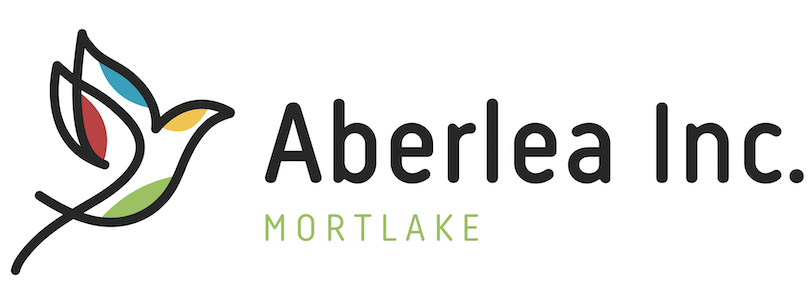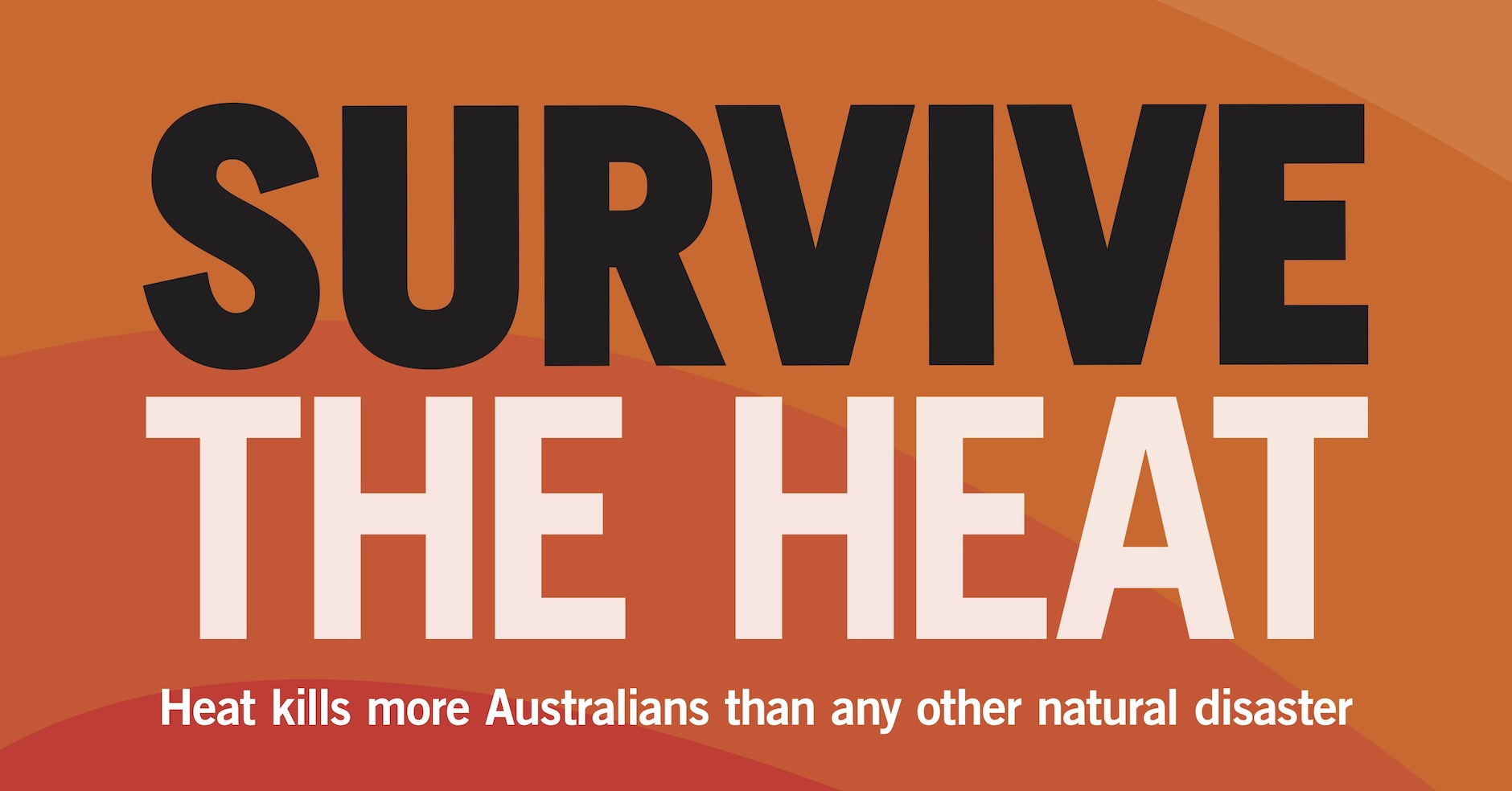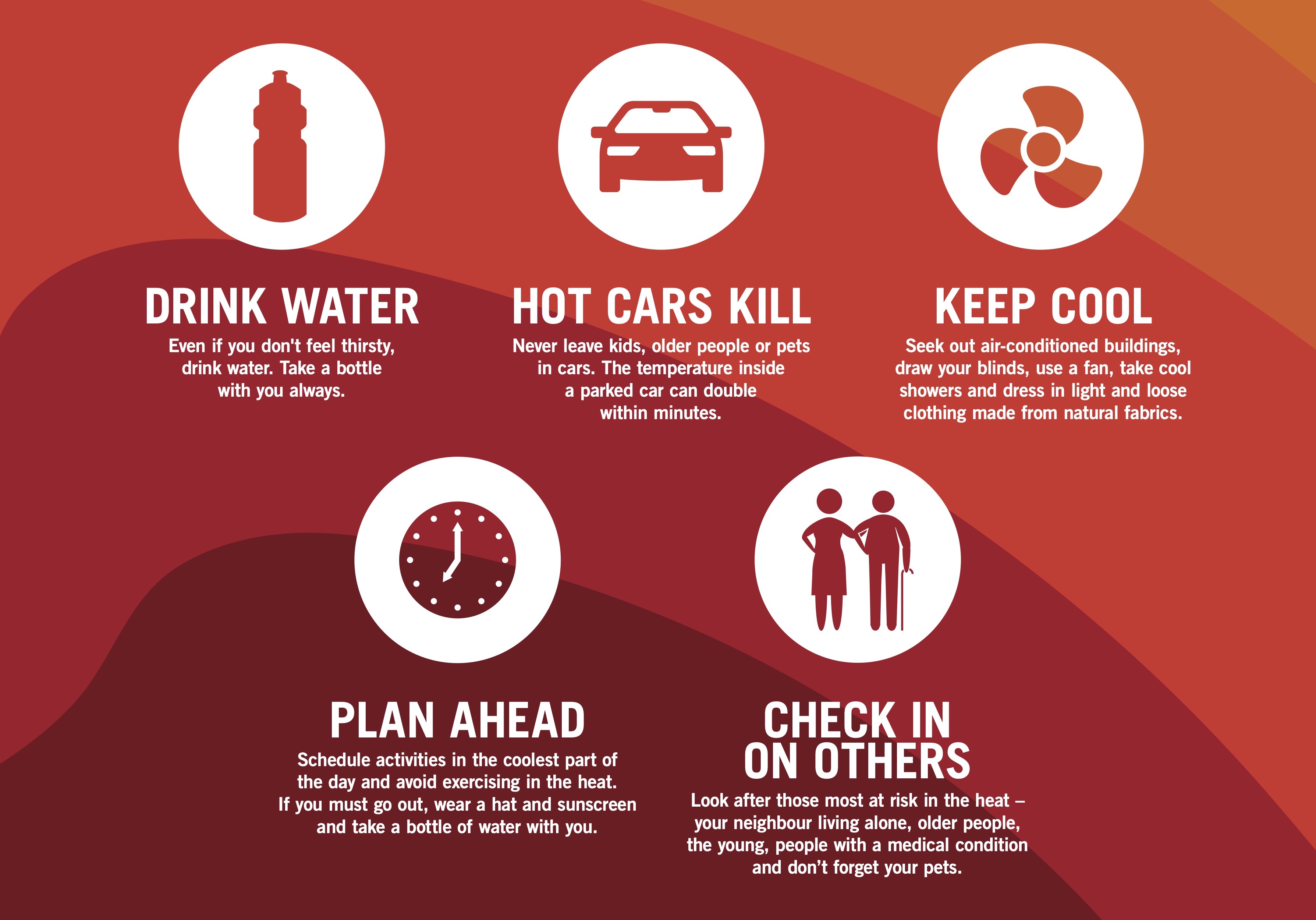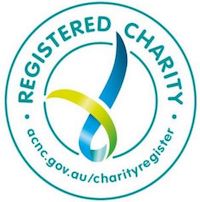Heat stress occurs when our body is unable to cool itself enough to maintain a healthy temperature. Normally, the body cools itself by sweating, but sometimes sweating isn’t enough and the body temperature keeps rising.
Heat-related illness can range from mild conditions such as a rash or cramps to very serious conditions such as heatstroke, which can kill.
What is a heatwave?
- A heatwave is a period of excessively hot weather.
Why are heatwaves a problem?
- Heatwaves can cause people to become ill, and sometimes die.
- Heatwaves are most dangerous if they occur early in the summer season, if they last for several days, and if they include hot nights.
- Heatwaves can cause fatigue, heat rash, heat cramps, heat exhaustion and heat stroke. Heat exhaustion and heat stroke can lead to death.
- Heatwaves also cause death by causing a worsening of existing health problems, especially heart or lung disorders.
Who is most at risk?
In an aged care facility, all residents are at risk of heat-related illness.
Those residents most at risk are:
- aged 65 years or older
- overweight or obese
- people with a chronic disease, such as heart disease, high blood pressure, diabetes, cancer, kidney disease
- people unable to care for themselves
- people with a health condition that impairs sweating, such as scleroderma, extensive scarring from burns
- people with limited mobility or confined to bed
- people with dementia or psychiatric illness
- people taking medications that interfere with the body’s ability to regulate temperature.
What you can do to assist your family member during excessively hot weather.
Provide an adequate supply of light coloured, loose-fitting cotton clothing
This could include:
- For ladies: sleeveless summer dress and summer night wear.
- For men: short-sleeved shirt, shorts, cotton summer socks and summer pyjamas.
Encourage and assist with sipping cool water or other drinks as recommended by care staff
- Offer assistance
- Ensure drinks are within reach
- Fill up water jugs.
Look for any signs of distress and if present report this to care staff immediately
- Rapid breathing or difficulty breathing
- Weakness, dizziness, fainting, nausea, vomiting
- Fatigue, headache, confusion.
Take care of yourself!
- Stay out of the sun
- Avoid travelling in the hottest part of the day
- Spend at least three hours in an airconditioned space
- Have plenty to drink
- Avoid strenuous activity.
Want to know more?
- Ask care staff at Aberlea or your healthcare professional
- Visit the Better Health Channel website www.betterhealth.vic.gov.au/health/healthyliving/heat-stress-and-heat-related-illness





Leave a Reply